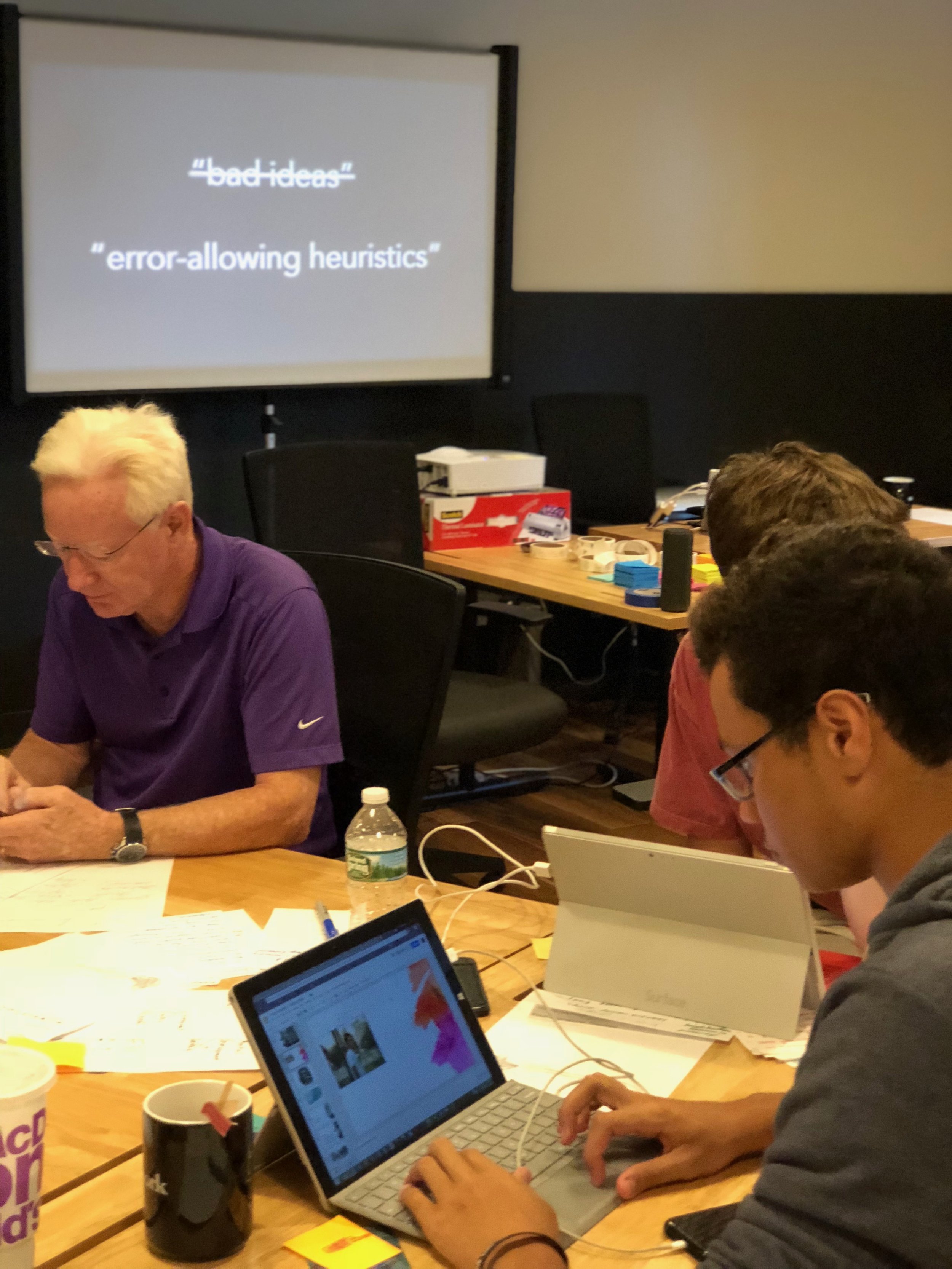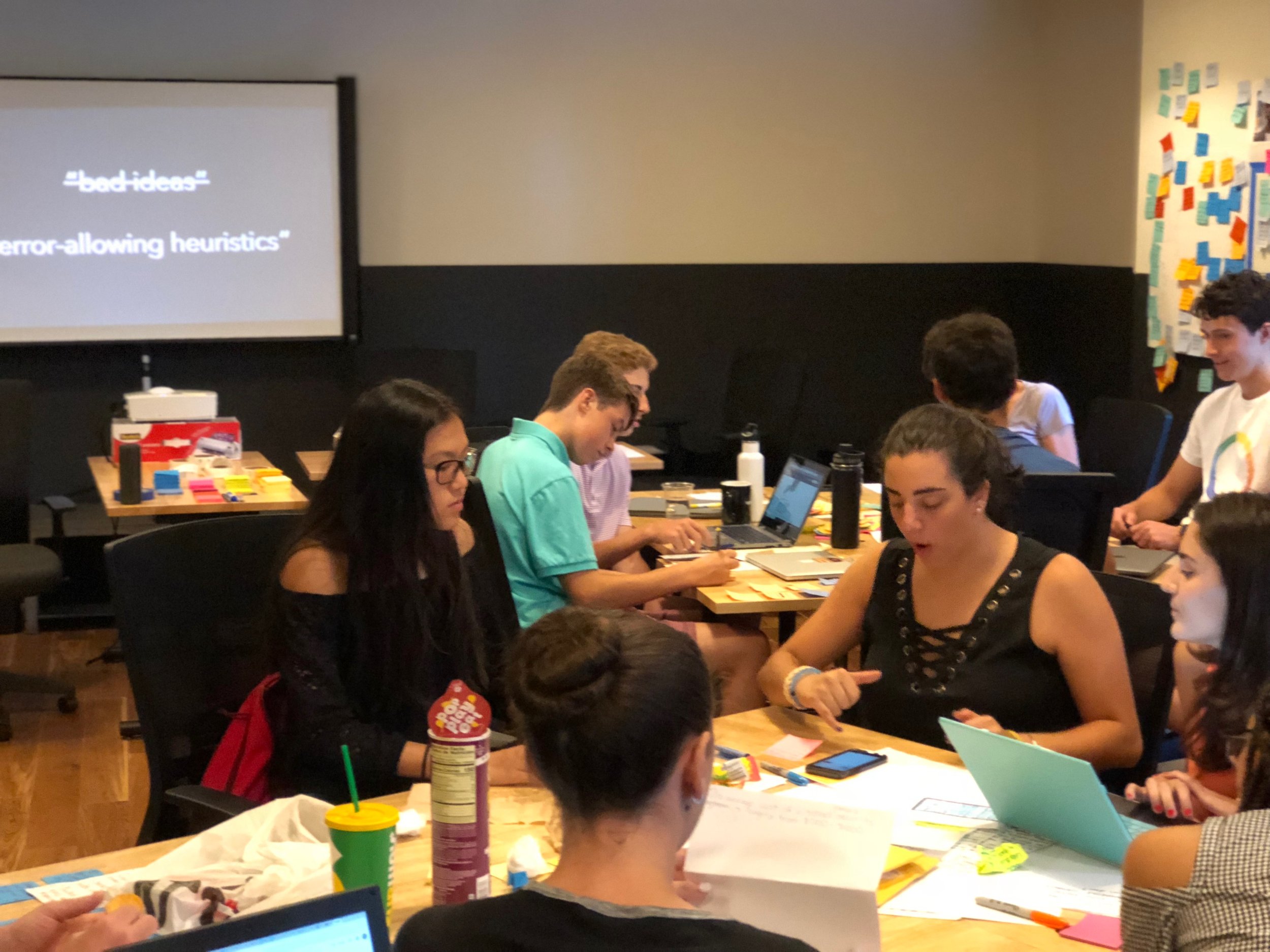Expeditionaries Day 7 of 8: What if bad ideas lead to good ideas?
As the CEO panel pitches approach, the Regis team tries to work through ideas that might improve their prototype.
"What if your bad ideas weren't actually bad ideas?" I said.
The looks around the room told me that I hadn't made my point the way I had hoped.
"OK, let me rephrase that. We all know that a bad idea is a bad idea. But what if it weren't only a bad idea? What if it could also lead you to a great idea?"
While Day 7 of Expeditionaries was taking place at WeWork in New York City, I was actually speaking these words in Chicago, where Basecamp design partner Viktor Venson and I were running a workshop for 19 executives to reimagine their company’s vision and culture.
I cited the research from Shane Snow's new book, Dream Teams (2018):
"The story of the Black Square [an infamous painting by Kazimir Malevich] teaches us something counterintuitive about cognitive diversity. It teaches us that sometimes bad ideas can be useful, if anything, because a bad idea can be very good at pointing us in a new direction.
"The scientific term for this is 'error-allowing heuristics'."
Back at WeWork, my Expeditionaries co-facilitator Patrick Sillup was shepherding the Regis, Bishop Kearney, and Fordham Prep teams through the final iterations on their prototypes in preparation for the CEO panel they would face the following day.
Each Expeditionary needed to trust that he could voice bad ideas, knowing that they might lead to great ideas. Such trust is challenging under any circumstances, and especially difficult the day before presenting to an executive panel and a room full of parents, school leaders, and, in this case, WeWork tenants.
How exactly do "error-allowing heuristics" work? As Snow goes on to say,
"Provocation spurs us to action; it shows us something we can't unsee. We might call what happened with [...] Malevich 'cognitive expansion'. It happens when we look beyond our normal frame and decide to consider new perspectives and heuristics in our process. It happens when we are curious." [emphasis added]
How often does school reward us for being "curious"? Isn't much of school an extended exercise in inhibiting "bad ideas"? That might make sense when students are tackling problems about "known knowns"--like factoring a quadratic equation--but it's not a great way to form creative problem solvers.
By contrast, the Expeditionaries experience is about encouraging students to grapple with problems that they have never seen before. Given that these "known unknowns" constitute a significant portion of life, we encourage our Expeditionaries to be curious when they hear bad ideas. (For that precise reason, our warm up exercises focus on lateral, creative thinking rather than linear, logical thinking.)
In our Age of Accelerating Change, we need Expeditionaries who are not only willing to journey into the unknown, but who also are more comfortable with questions than answers, with curiosity than judgment.
Is there room in the learning experience at your school for bad ideas also to be good ideas?
***
Stay tuned for Expeditionaries Day 8 of 8: Approaching the North Star
***
Thank you for reading this post from Basecamp's blog, Ed:Future. Do you know someone who would find the Ed:Future blog worthwhile reading? Please let them know that they can subscribe here.



